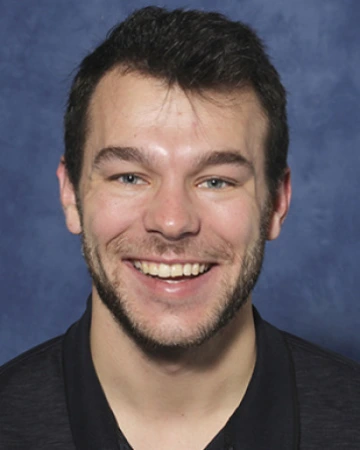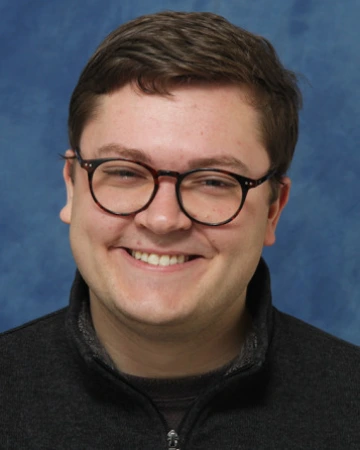Spring
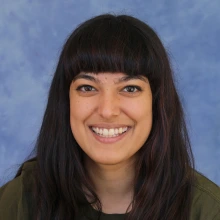
The Planetary Science Institute has selected University of Arizona graduate student Namya Baijal as one of two recipients of the 2025 of the 2025 Pierazzo International Student Travel Award.
PSI established the award in memory of Senior Scientist Betty Pierazzo to support and encourage graduate students to build international collaborations and relationships in planetary science. Each awardee will receive a certificate and check for $2,000 at their respective conferences.
Baijal will attend the Europlanet Science Congress – Division of Planetary Sciences Joint Meeting 2025 to be held in Helsinki, Finland from Sept. 7-12 where she will present her research titled “Three-dimensional Modelling of the Major Impact Craters on (16) Psyche.” Through her research, she works to understand how collisions have shaped the surface of asteroid (16) Psyche, a unique metal-rich asteroid in the main belt and the target of NASA’s Psyche Mission, set to arrive in 2029. Through impact modeling, she and her colleagues aim to help answer the mission’s central question: “Is Psyche the leftover core of a differentiated planetesimal, and if so, how did it form?”
Pierazzo, after whom the prize is named, was an expert in the area of impact modeling throughout the solar system, as well as an expert on the astrobiological and environmental effects of impacts on Earth and Mars. In addition to her research, she was passionate about education, teaching and public outreach, developing planetary-related classroom materials, professional development workshops for teachers, and teaching college-level classes herself. Betty believed in the strength of broad collaborations in all of her research and education activities.
This award memorializes the scope of how she lived her life and the good she sought to bring to our profession and communities.
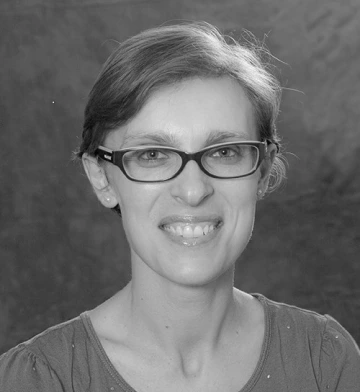
Professor Ilaria Pascucci won the 2025 University of Arizona Koffler Prize in the category of Research and Scholarship for her transformative contributions to our understanding of the formation and evolution of planetary systems.
Professor Pascucci's research is directed towards understanding how planets form and evolve and how common are planetary systems like our own Solar System. Her group carries out observations aimed at characterizing the physical and chemical evolution of gaseous dust disks around young stars, the birth sites of planets. In addition, they use exoplanet surveys to re-construct the intrinsic frequency of planets around mature stars. By linking the birth sites of planets to the exoplanet populations, they contribute to building a comprehensive and predictive planet formation theory, a necessary step in identifying which nearby stars most likely host a habitable planet like Earth.
In 2023, Dr. Pascucci's teaching was recognized with receipt of the Professor Leon and Pauline Blitzer Award for Excellence in the Teaching of Physics and Related Sciences. She was elected as a Fellow of the American Astronomical Society in 2022.
The University of Arizona Koffler Prizes recognize outstanding accomplishment in the areas of teaching; research/scholarship/creative activity or public service/outreach with an emphasis on originality and international recognition.
Congratulations to the 2025 LPL recipients of seed grants from the Arizona Astrobiology Center!
- Eleanor Cornish, Undergraduate Student (Astrobiology minor)
- Kayla Smith, Graduate Student (Planetary Sciences/LPL)
- Dr. Pierre Haenecour, Assistant Professor (LPL)
The AABC Seed Grant program is an opportunity to foster creative, ambitious, and interdisciplinary scholarship and engagement in the expansive field of astrobiology. This initiative is uniquely inclusive, extending beyond the traditional confines of biological and space sciences. Researchers from the social sciences, arts, science education, and other diverse fields are invited to contribute their perspectives and expertise. The Center aims to nurture innovative, interdisciplinary research endeavors that deepen our understanding of life's origins, evolution, distribution, and future in the universe. This seed grant is a call to thinkers and explorers across all disciplines.
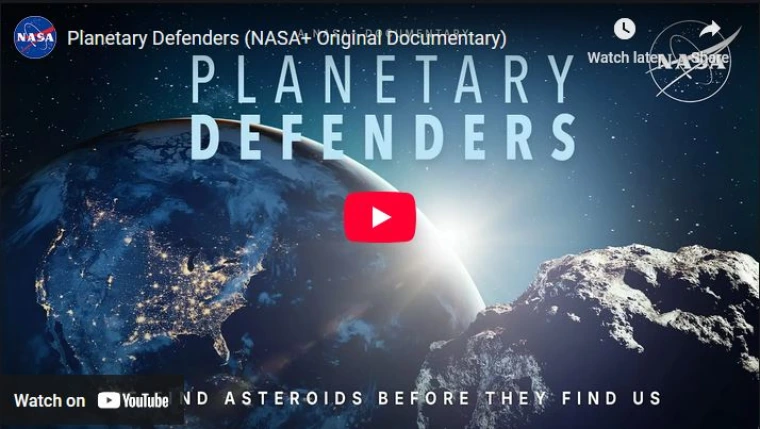
By NASA Communications
How would humanity respond if we discovered an asteroid headed for Earth?
NASA’s Planetary Defenders is a gripping documentary that delves into the high-stakes world of asteroid detection and planetary defense. Journey alongside a dedicated team of astronomers and scientists working tirelessly to track and monitor near-Earth asteroids, aiming to protect our planet from potential impacts. This documentary captures the intricate and collaborative efforts of these unsung heroes, blending cutting-edge science with personal stories to reveal the human spirit behind this critical global endeavor. Witness the drama, the challenges and the triumphs of those on the front lines of planetary defense.
Planetary Defenders focuses on the LPL Catalina Sky Survey and Spacewatch programs, both part of NASA's Planetary Defense Coordination Office which has a mission to find, track, and better understand asteroids and comets that could pose an impact hazard to Earth.
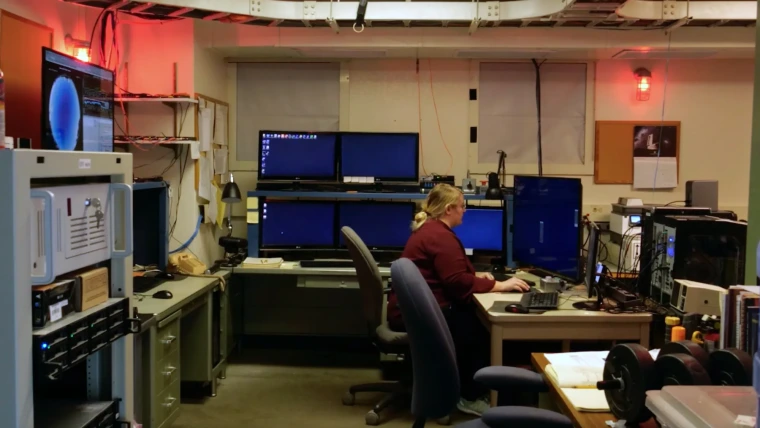
Spacewatch researcher and LPL alumna Dr. Cassandra Lejoly is one of the many familiar LPL faces that appear in the documentary. During an interview in the film, Dr. Lejoly noted, "I really like that I am protecting the planet. And yes, I'm not the one that's with a cape pushing the asteroid away, that's not what I do. In some ways, my little contribution might not help just myself, but someone in the future, and I think it's very important to do that."
Planetary Defenders can be streamed on NASA+ and YouTube and is available on NASA+ from Amazon Prime.
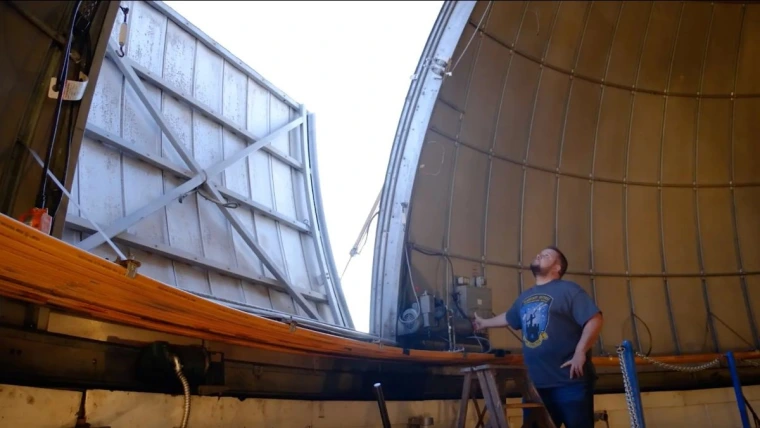
The UA/NASA Space Grant Program, in collaboration with the UA Graduate College and the nominating department, funds six graduate fellowships per year to exceptional graduate students interested in promoting the understanding of space-related research to the public. Applicants are asked to propose a 1-2 year project focused on educational outreach, knowledge transfer, technology transfer, science for society, and/or the promotion of science, technology, engineering and mathematics (STEM) to those traditionally underrepresented in STEM. In keeping with National Space Grant College and Fellowship Program goals, Space Grant Fellows develop projects that promote the understanding of space-related research to the public through original research and outreach efforts. Awards include a stipend, tuition and registration fee waivers, student health insurance, and a travel grant to attend professional conferences.
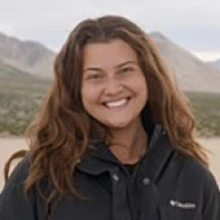
Madison is a third-year Ph.D. student in Geosciences, completing a graduate minor in Planetary Sciences. She is advised by Associate Professor Christopher Hamilton. Madison is interested in the active eruptions in Fagradalsfjall, Iceland, and how these eruptions can be used for hazard mitigation and planetary analogs.
Madison recently won four awards from the Dept. of Geosciences:
- Montgomery Associated Best Overall Talk: Observing the effects of complex topography on fissure-fed facies in the 2021-2023 Fagradalsfjall (Iceland) eruption series
- Bert S. Butler Scholarship
- Spencer R. Titley Graduate Scholarship
- John and Nancy Sumner Scholarship which Madison will use to travel to Italy to participate in a workshop focused on observing active volcanism at Mt. Etna and Stromboli and then to Geneva, Switzerland, to present her work at the IAVCEI (International Association of Volcanology and Chemistry of the Earth's Interior) General Assembly.
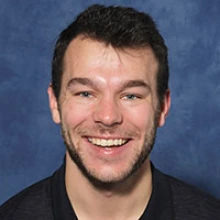
Nathan Hadland has been named an ARCS Scholar for the 2025-2026 academic year. The ARCS (Achievement Rewards for College Scientists) Foundation advances science and technology in the United States by providing financial awards to academically outstanding students who are U.S. citizens studying to complete degrees in science, engineering, math, technology, and medical research. Scholars receive a cash stipend, full tuition, and a travel grant.
Nathan’s research focuses on microbial life in volcanic environments as an analog for life on Mars. He is a fifth-year graduate student advised by Associate Professor Solange Duhamel (MCB) and Associate Professor Christopher Hamilton.
The Parker Solar Probe team was honored with the 2024 Robert J. Collier Trophy by the National Aeronautic Association. This annual award recognizes the most exceptional achievement in aeronautics and astronautics in America with respect to improving the performance, efficiency, and safety of air or space vehicles in the previous year. Professor Joe Giacalone and Associate Professor Kris Klein are both co-investigators on this mission.
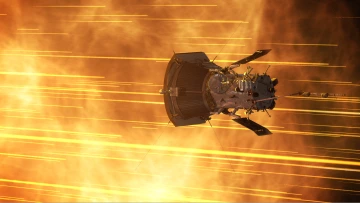
Dr. Giacalone's core research interests include understanding the origin, acceleration, and propagation of cosmic rays, and other charged-particle species in the magnetic fields of space, and general topics in space plasma physics, and astrophysics.
Dr. Klein's research focuses on studying fundamental plasma phenomena that governs the dynamics of systems within our heliosphere as well as more distant astrophysical bodies.
LPL Research Scientist Dr. Mihailo Martinovic is an Affiliate with the Parker Solar Probe mission.
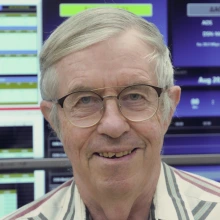
Regents Professor George Rieke has been named a University of Arizona Galileo Circle Fellow.
Dr. Rieke holds a B.A. in Physics from Oberlin College, and both an M.A. and Ph.D. in Physics from Harvard University. In 1970, he joined the Lunar and Planetary Laboratory (LPL) as a postdoctoral researcher, marking the beginning of a distinguished career at the University of Arizona. Throughout his tenure, Dr. Rieke has held several key roles in LPL, the Department of Planetary Sciences, the Department of Astronomy, and the Steward Observatory. In 2004, he was named Regents Professor for his exceptional abilities and achievement of national and international distinction.
Professor Rieke is the Science Team Lead for the Mid-Infrared Instrument on the James Webb Space Telescope. He previously led the development of the Multiband Imaging Photometer for SIRTF instrument for the Spitzer Space Telescope. His current science is focused on the capabilities of these instruments.
A prolific scholar, Dr. Rieke has co-authored more than 580 peer-reviewed publications which have received more than 58,000 citations, making him one of the most highly cited faculty members at the University of Arizona. Throughout his career, Dr. Rieke has mentored 29 Ph.D. students and supervised more than 30 postdoctoral fellows. In 2023, he was awarded the NASA Distinguished Public Service Medal, the highest honor NASA bestows on non-government employees. He is a member of the National Academy of Sciences.
Galileo Circle Fellows are academic scholars who demonstrate a deep understanding over a broad range of science, a willingness to think in a truly interdisciplinary way, and an ability to inspire colleagues and students alike.
Pagination
- Page 1
- Next page


